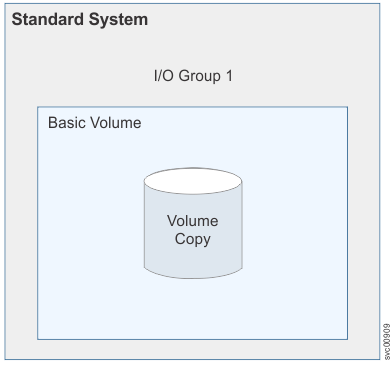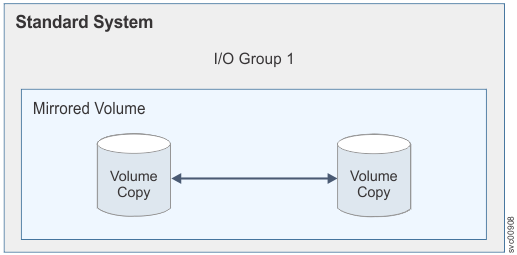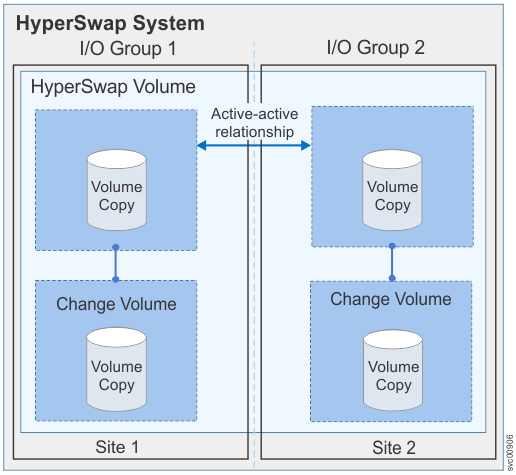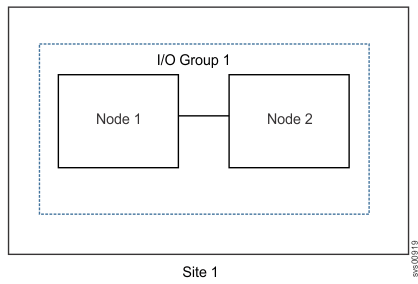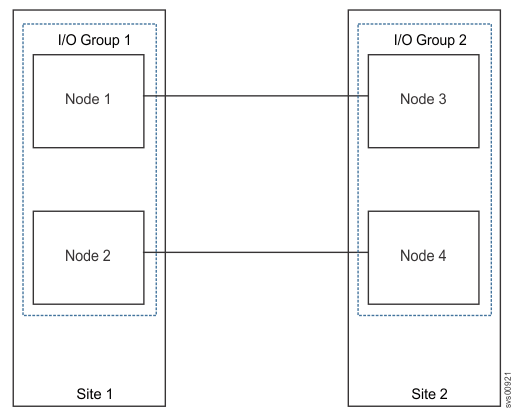Each Lenovo Storage V series system is a virtualizing RAID storage system. Lenovo Storage V3700 V2, Lenovo Storage V3700 V2 XP, and Lenovo Storage V5030 systems are Lenovo Storage V series systems.
Lenovo Storage V series software
Lenovo Storage V series is built with Spectrum Virtualize™ software, which is part of the Spectrum Storage™ family.
Lenovo Storage V series hardware
The Lenovo Storage V seriesstorage system consists of a set of drive enclosures. The control enclosure contains disk drives and two node canisters. Expansion enclosures contain disk drives and two expansion canisters.
| Lenovo Storage V series Model | Machine type / model | Part Number | Warranty | Description |
|---|---|---|---|---|
| Lenovo Storage V3700 V2 | 6535-HC1 | 6535C1D | 3 years | 12-slot control enclosure for 3.5-inch drives |
| 6535-HC4 | 6535C2D | 3 years | 24-slot control enclosure for 2.5-inch drives | |
| Lenovo Storage V3700 V2 XP | 6535-HC2 | 6535C3D | 3 years | 12-slot control enclosure for 3.5-inch drives |
| 6535-HC5 | 6535C4D | 3 years | 24-slot control enclosure for 2.5-inch drives | |
| Lenovo Storage V5030 | 6536-HC3 | 6536C12 | 3 years | 12-slot control enclosure for 3.5-inch drives |
| 6536-HC6 | 6536C22 | 3 years | 24-slot control enclosure for 2.5-inch drives | |
| 6536-HC3 | 6536C32 | 5 years* | 12-slot control enclosure for 3.5-inch drives | |
| 6536-HC6 | 6536C42 | 5 years* | 24-slot control enclosure for 2.5-inch drives | |
| Lenovo Storage V5030F | 6536-HC6 | 6536B1F | 3 years | 24-slot control enclosure for 2.5-inch flash drives |
| 6536-HC6 | 6536B2F | 5 years* | 24-slot control enclosure for 2.5-inch flash drives |
| Lenovo Storage V series Model | Machine type / model | Part Number | Warranty | Description |
|---|---|---|---|---|
| Lenovo Storage V3700 V2 and Lenovo Storage V3700 V2 XP | 6535-HC7 | 6535N1F | 3 years | 12-slot expansion enclosure for 3.5-inch drives |
| 6535-HC8 | 6535N2F | 3 years | 24-slot expansion enclosure for 2.5-inch drives | |
| Lenovo Storage V5030 | 6536-HC7 | 6536N13 | 3 years | 12-slot expansion enclosure for 3.5-inch drives |
| 6536-HC8 | 6536N23 | 3 years | 24-slot expansion enclosure for 2.5-inch drives | |
| 6536-HC7 | 6536N33 | 5 years* | 12-slot expansion enclosure for 3.5-inch drives | |
| 6536-HC8 | 6536N43 | 5 years* | 24-slot expansion enclosure for 2.5-inch drives | |
| Lenovo Storage V5030F | 6536-HC8 | 6536B3F | 3 years | 24-slot expansion enclosure for 2.5-inch flash drives |
| 6536-HC8 | 6536B4F | 5 years* | 24-slot expansion enclosure for 2.5-inch flash drives |
Figure 1 shows a Lenovo Storage V series system as a traditional RAID storage system. The internal drives are configured into arrays. Volumes are created from those arrays.
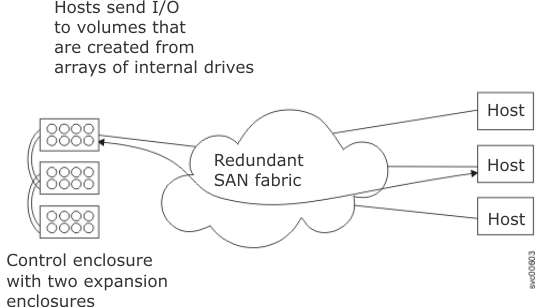
The two node canisters are known as an I/O group. The node canisters are responsible for serving I/O on the volumes. Because a volume is served by both node canisters, there is no loss of availability if one node canister fails or is taken offline. The Asymmetric Logical Unit Access (ALUA) features of SCSI are used to disable the I/O for a node before it is taken offline or when a volume can not be accessed via that node.
Volumes types
System topology
System management
The Lenovo Storage V series nodes operate as a single system and present a single point of control for system management and service. System management and error reporting are provided through an Ethernet interface to one of the nodes in the system, which is called the configuration node. The configuration node runs a web server and provides a command-line interface (CLI). The configuration node is a role that either node can take. If the current configuration node fails, the other node becomes the configuration node. Each node also provides a command-line interface and web interface for performing hardware service actions.
Fabric types
I/O operations between hosts and Lenovo Storage V series nodes and between Lenovo Storage V series nodes and RAID storage systems are performed by using the SCSI standard. The Lenovo Storage V series nodes communicate with each other by using private SCSI commands.
Fibre Channel and Fibre Channel over Ethernet (FCoE) connectivity is supported on Lenovo Storage V series with the optional FCoE feature installed.
Table 3 shows the fabric types that can be used for communicating between hosts, nodes, and RAID storage systems. All installed fabric types can be used at the same time.
| Communications type | Host to Lenovo Storage V series | Lenovo Storage V series to storage system |
|---|---|---|
| iSCSI (1 Gbps Ethernet) | Yes | No |
| iSCSI (10 Gbps Ethernet) | Yes Note: Lenovo Storage V3700 V2 and Lenovo
Storage V3700 V2 XP systems must have the optional 10 Gbps Ethernet host interface adapter installed to use Ethernet for host attachment. The Lenovo Storage V5030 has a 10 Gbps Ethernet port preinstalled on the system for host
attachment.
|
No |
| Fibre Channel over Ethernet | Yes, with 10 Gbps Ethernet host interface adapter | Yes, with 10 Gbps Ethernet host interface adapter |
